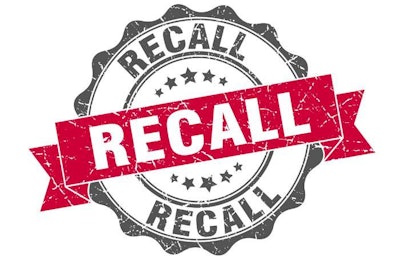
Adapted from a press release:
The Massachusetts Department of Public Health (DPH) is advising consumers who have any Dog Gone Dog Treats to dispose of them. There have been three cases of salmonellosis (infection with the Salmonella bacteria) linked to individuals handling these recalled dog treats. The cases include two adults in their 70s and a child; all are residents of Essex County, Massachusetts, USA. One open bag from a customer and several unopened bags purchased last week all tested positive for Salmonella at the State Public Health Laboratory.
Dog Gone Dog Treats are made in Georgetown, Massachusetts, USA include “chicken chips” and beef liver and sweet potato chips, and are sold at Essex County Co-Op in Topsfield, Massachusetts, USA, New England Dog Biscuit Company in Salem, Massachusetts, USA, Gimme Chews & Moore in Haverhill, Massachusetts, USA and Animal Krackers in Gloucester, Massachusetts, USA. These treats are dehydrated and are not fully cooked.
All stores have been ordered to remove any existing product from their shelves and no additional product is currently being made. People get Salmonella if they eat or handle food that has been contaminated with the bacteria and the food has not been properly handled, prepared, or cooked. Salmonella is common in uncooked food products from animals, such as eggs, poultry, and unpasteurized milk. People who get the germs on their hands can infect themselves by eating, smoking, or touching their mouths. They can also spread the germs to anyone or anything they touch, including food.
Most people with an infection will have diarrhea, fever, and stomach cramps that can last up to a week; severe disease is possible but uncommon. Although treatment is not always necessary, people who have weakened immune systems, very young children, adults over 65, and those experiencing severe symptoms should talk to their healthcare providers about treatment. Individuals should consult with their healthcare provider if they have symptoms after contact with the dog treats or an animal that has eaten the dog treats.
Dogs that become ill from Salmonella infection may experience diarrhea that can contain blood or mucus, may seem more tired than usual, and may have a fever or vomit. It is also possible for dogs to have Salmonella infection and not appear sick. Those concerned that their dogs may have become ill after eating the treats should consult their veterinarians.














